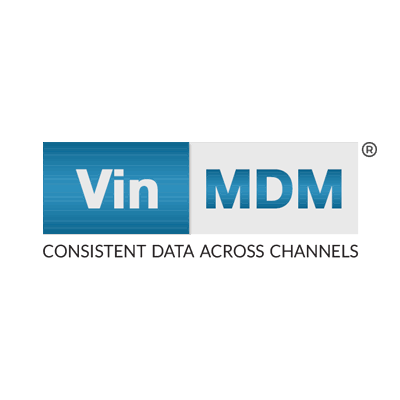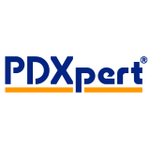What Is Product Data Management Software?
Product Data Management (PDM) software is a useful tool for organizations of all sizes that need to manage and organize their product data in a streamlined and efficient way. It is a consolidated platform that enables businesses to store, track, and control all product-related information, from initial design to delivery. PDM software has a wide range of functionality, including product data creation, classification, and change management.
It also facilitates collaboration among team members, suppliers, and stakeholders, allowing everyone to access the most recent product data in real time. This improves communication and decision-making, resulting in speedier product development cycles. One of the fundamental advantages of PDM software is its ability to keep product data accurate and consistent throughout its lifecycle.
This is especially important for companies that sell a wide variety of products or have complex product structures. PDM enables firms to verify that the correct data is used across departments, eliminating errors and rework. Furthermore, PDM software provides safe data storage and backup options, reducing the risk of data loss caused by hardware failure or other unanticipated events.
This data security ensures that only authorized individuals have access to confidential product information, protecting it from competitors and other external dangers. PDM software also interfaces with other business systems, such as enterprise resource planning (ERP) and customer relationship management (CRM), resulting in a smooth flow of information and streamlined operations across departments. This results in increased efficiency, production, and cost savings for businesses.
What Are The Recent Trends In Product Data Management Software?
Latest Trends in Product Data Management Software Product data management software (PDM) is now a vital tool for firms to manage, organize, and analyze product data. The PDM software business has seen various developments in recent years, driven by rapid technological advancements and an increased demand for efficient data management. These trends have revolutionized business operations and had a substantial impact on PDM software development.
Let us take a deeper look at some recent trends in PDM software.
1. Cloud-Based Solutions: One of the most significant changes in PDM software is the migration to cloud-based solutions. More and more firms are shifting away from traditional on-premise solutions and toward cloud-based PDM software. This trend is being pushed by the demand for remote access, scalability, and cost-effectiveness. Cloud-based solutions enable organizations to access and manage product data from anywhere at any time, facilitating collaboration and streamlining processes.
2. Automation And Artificial Intelligence: Another key advancement in PDM software is the incorporation of automation and artificial intelligence (AI). With the increasing volume of product data created by enterprises, manual data management operations have become difficult and time-consuming. As a result, PDM software is adding automation and artificial intelligence (AI) to automate repetitive activities, eliminate manual errors, and increase data quality.
3. Integration With Other Systems: PDM software is also becoming more open and collaborative, interacting with other systems like enterprise resource planning (ERP), customer relationship management (CRM), and supply chain management (SCM). This trend allows firms to have a comprehensive view of their product data across numerous systems, reducing operations and increasing data accuracy.
4. Mobile Compatibility: With the development of remote work and mobile device use, PDM software is becoming more mobile-friendly. This trend enables teams to access and collaborate on product data via smartphones or tablets, which boosts productivity and efficiency.
5. Data Visualization And Analysis: PDM software is now combining data visualization and analytics features to assist firms in making data-driven decisions. This trend allows firms to acquire insights into their product data, spot trends, and make proactive decisions to optimize operations, cut costs, and enhance income.
Benefits Of Using Product Data Management Software
Product data management (PDM) software is a sophisticated tool that enables businesses of all sizes to manage and organize product data. It is a comprehensive system that improves and simplifies the entire product development process, from design to manufacture to distribution.
Here are some of the main advantages of adopting product data management software in your business:
1. Centralized Data Management: One of the primary advantages of PDM software is that it offers a single platform for handling all of your product data. This implies that all of your product information, drawings, specs, and documents are maintained in one place, making them easily available to all team members. This removes the need for several spreadsheets, emails, and physical documents, saving you time and lowering the likelihood of mistakes and miscommunication.
2. Improved Data Accuracy: PDM software keeps your product data accurate and up to date. It enables you to define data management rules, workflows, and approval processes, ensuring that only approved and accurate information is entered into the system. This decreases the likelihood of errors and inconsistencies, which can result in costly blunders and delays in product development.
3. Improved Cooperation: PDM software facilitates smooth cooperation among cross-functional teams, such as designers, engineers, and manufacturers. It enables team members to collaborate on product concepts, give feedback and comments, and track changes in real time. This enhances communication, speeds up decision-making, and allows teams to collaborate more effectively.
4. Uniform Processes: PDM software allows firms to create uniform processes for product data management. This guarantees that all team members adhere to the same protocols, lowering the risk of errors and assuring consistency in product data. Standardization also helps to streamline procedures and increase overall efficiency.
5. Efficient Version Control: PDM software contains version control features that enable you to trace changes to product data. This is especially important when working on complex product designs, as it assures that everyone is working with the most recent version of the product. It also makes it easier to roll back to prior versions if necessary, lowering the risk of errors and saving time.
6. Regulatory Compliance: PDM software enables firms to effortlessly comply with industry norms and standards. The software enables you to document and track all product data, making it easier to establish compliance in audits. This not only assures regulatory compliance, but also contributes to customer trust and brand reputation.
7. Faster Time-To-Market: PDM software helps firms accelerate product development by optimizing workflows, boosting collaboration, and eliminating errors and rework. This results in a faster time-to-market, helping businesses to stay ahead of the competition and meet consumer needs on time.
Important Factors To Consider While Purchasing Product Data Management Software?
When it comes to acquiring Product Data Management (PDM) software, there are various variables to consider in order to discover the best solution for your company. PDM software enables businesses to manage and retain their product data across the whole product lifecycle, from concept to retirement.
In today's fast-paced and competitive corporate world, having the appropriate PDM software is critical for efficient and effective product creation and management.
1. Functionality: The first and most significant consideration is the functionality of the PDM software. It should be able to meet your specific product data management requirements, such as data storage, version control, collaboration, and access controls. Make a list of the features that are critical to your organization and check that the software you select includes all of them.
2. Integration: PDM software should work easily with your existing systems, such as ERP and PLM software, to prevent data duplication and ensure accurate and up-to-date information across all platforms. Consider how the software will work with your existing business processes and whether any change is required.
3. Scalability: Your product data will grow together with your business. It is critical to select PDM software that can handle rising amounts of data and users while maintaining performance. It should also be able to support new product lines and handle changes in your company operations.
4. Usability: The PDM software should be easy to use, with a straightforward and well-organized user interface. Users should not need substantial training to understand and navigate. A demo or trial version of the program can help you assess whether it is easy to use and suits your needs.
5. Data Security: With the rise of cyber threats, data security has become a top priority for enterprises. PDM software handles significant and sensitive product data, so it is critical to select software with strong data encryption and access controls to maintain the security of your information.
6. Vendor Support And Training: Look for a PDM software vendor who offers extensive support and training to help you make the most of your investment. They should provide technical support, updates, and training on new features and functionalities.
7. Cost: PDM software can range from inexpensive to quite expensive. Before making a decision, consider both the initial cost and the ongoing maintenance and license payments. It is also critical to consider the value the software will add to your business and whether it is worth the cost.
8. User Reviews And References: Finally, study user reviews and request references from other firms that have used the PDM software under consideration. This can help you better grasp the software's strengths and shortcomings, as well as its overall satisfaction rating.
What Are The Key Features To Look For In Product Data Management Software?
Product data management software is an essential tool for firms that want to organize and streamline their product information and data. With the rising complexity of product offerings and the ever-changing market demands, it is critical to have a dependable and efficient software solution to properly manage product data. Navigating the market's plethora of options might be intimidating for buyers.
To help you make an informed decision, here are some crucial characteristics to look for in product data management software.
1. Centralized Database: A reliable product data management software should include a centralized database that allows you to keep all of your product information in one location. This feature keeps all of your data organized and accessible, reducing the need to manage several repositories.
2. Customization Capabilities: Each firm has its own product data management requirements. Look for software with customization possibilities to personalize the solution to your individual needs. This feature allows you to customize the software based on your company operations and preferences.
3. Data Import/Export: It is vital to have software that can import and export data. This feature allows you to import data from numerous sources and export it in a variety of formats, making it simple to interact with other systems and share information with third parties.
4. User-Friendly Interface: An intuitive user interface is an important feature of any software. Look for product data management software that is simple to use and browse. A simple and easy-to-use interface can help you save time and money on training, allowing you to get started quickly.
5. Version Control: Product data is constantly changing, therefore it's critical to maintain track of revisions and updates. Version control enables you to track changes to your product data, assuring correctness and preventing data duplication.
6. Data Security: With growing concern about data privacy, it is critical to have a product data management software that provides strong security and data protection features. Look for features like role-based access control and data encryption to protect your product information.
7. Integration With Other Systems: To ensure seamless data flow across your business operations, you must have software that integrates with other systems. Look for product data management software that can be integrated with your current ERP or CRM systems.
8. Analytics And Reporting: Using product data management software to gain insights into your data will help you make more informed business decisions. Dashboards, analytics, and reporting tools can provide significant insights into your product data.
9. Scalability: As your firm expands, your product data management requirements may shift. Choose software that can grow with your company, allowing you to add new product categories and expand your operations without sacrificing data management.
When looking for product data management software, keep these vital qualities in mind. This will help you choose a solution that meets your company's goals and fosters growth. Compare options, read reviews, and request product trials to make an informed decision and select the best software for your business.
Why Do Businesses Need Product Data Management Software?
Product data management software is a critical tool for companies of all sizes operating in a variety of industries. As the name implies, this software enables organizations to easily store and arrange their product data. From small startups to global firms, product data management software is an essential investment for companies aiming to optimize operations and maximize their potential.
One of the fundamental reasons firms use product data management software is to provide consistent and correct product information. Businesses cannot afford to have obsolete or erroneous data as customers, regulators, and stakeholders demand more specific product information. Product data management software, with its centralized database and optimized processes, ensures that all product information is accurate, up to date, and available throughout the business.
Another important feature of product data management software is its capacity to enhance collaboration and communication inside a company. This software enables many teams, such as product development, marketing, and sales, to view and collaborate on the same product data. Real-time updates and version control ensure that everyone is on the same page, which reduces errors and misunderstanding.
This capability is especially useful for firms with remote personnel or worldwide offices. Furthermore, product data management software contributes significantly to cost savings and increased productivity. Businesses can save time and resources by automating manual procedures like data entering and updating, freeing up personnel to focus on more important activities. Businesses can minimize duplication of work and inconsistent data by using a centralized database and standardized processes, resulting in long-term cost benefits.
Furthermore, product data management software is essential for organizations trying to diversify their product offers or enter new markets. The software's ability to handle large amounts of data, such as product specs, pricing, and compliance information, makes it the preferred solution for organizations dealing with complicated regulatory standards and worldwide markets. With all product data in one location, firms can easily adjust to shifting marketplace conditions and customer requests, keeping their products competitive.
How Much Time Is Required To Implement Product Data Management Software?
The implementation timetable for Product Data Management (PDM) software can vary greatly based on a number of factors, including the size of your organization, the complexity of your product data, and the features and functionalities of the PDM system you select. A PDM software implementation typically takes 3-6 months to complete, from initial planning to go-live.
This period can be shorter or longer depending on your individual company requirements. During the first stage of deployment, you will need to identify your product data management requirements, compare the capabilities of several PDM software solutions, and choose the best one for your needs. This phase can last anywhere from two to four weeks. Next, the PDM software must be configured and tailored to fit your individual business processes and data models.
This phase normally lasts 2-4 months, depending on the complexity of your data and the level of customization required. After the setting is complete, the software will be thoroughly tested to confirm its operation and compatibility with your current systems. This testing phase can last between 2-4 weeks, followed by user training and data migration.Finally, during the go-live phase, the PDM software is launched and made fully operational.
The duration of this phase varies depending on the size of your organization and the complexity of your data, but it usually lasts 1-2 months. Keep in mind that, while initial implementation may take several months, the benefits of adopting PDM software, such as enhanced data accuracy, shorter product development time, and more efficient cooperation, can be realized almost immediately. With careful planning and execution, you can successfully adopt PDM software to improve your product data management operations and promote corporate growth.
What Is The Level Of Customization Available In Product Data Management Software?
Product Data Management (PDM) software is an essential component of every business' data management strategy. It facilitates the organization, storage, and retrieval of product data, allowing firms to better manage and utilize their product information. The level of customisation provided is a significant consideration when selecting PDM software.
Every organization has distinct demands and requirements, and the ability to configure the PDM software guarantees that it can suit these individual needs and assist enterprises in achieving their objectives. Most PDM software provides some degree of customization, allowing firms to adjust it to their individual needs. This includes the flexibility to create custom workflows, fields, and forms that align with the business's data management processes.
Furthermore, PDM software should have access level modification, ensuring that critical product data is only accessible to authorized workers. Another degree of customisation is the ability to interact with existing corporate software and processes. This is especially significant for firms that utilize many software applications to manage various elements of their operations.
A good PDM software should integrate seamlessly with other common software applications, such as ERP, CRM, and CAD. Some PDM software also has advanced customization features, such as the ability to design bespoke data models and connections. This enables firms to organize their product data in a way that is appropriate for their specific operations and products.They can also design bespoke dashboards and reports to provide a thorough picture of their product data, allowing for faster and more informed decision-making.
When determining the extent of customisation in PDM software, it is critical to evaluate the product's simplicity of use. The finest PDM software should include simple customization options that enable organizations to make necessary adjustments without requiring substantial technical knowledge. This means that organizations may take full advantage of the software's customization capabilities without investing substantial time and money.
Which Industries Can Benefit The Most From Product Data Management Software?
Product data management software (PDM) is a strong tool that can benefit a wide range of industries. Its primary goal is to successfully manage and control product data throughout the whole design and development process, including distribution. If you're thinking about investing in PDM software for your organization, you might be asking which sectors will profit the most from its deployment.
The following industries can considerably benefit from the adoption of PDM software:
1. Manufacturing Industry: The manufacturing industry is one of the most likely to profit from PDM software. With the continual need for product innovation and efficiency, manufacturers must constantly manage massive amounts of product data. PDM software can help to simplify this process by offering a centralized platform for managing and organizing all product data, from CAD files to manufacturing instructions. This results in speedier product development, stronger cooperation, and greater control and visibility of product data.
2. Car Industry: PDM software can also be very beneficial to the car industry. Automotive manufacturers require a powerful PDM solution to efficiently manage their product data in the face of complicated designs, stringent regulations, and tight timeframes. PDM software can help track design changes, manage version control, and ensure compliance with safety and environmental laws.
3. Consumer Products Business: In the very competitive consumer products business, being ahead of the curve is critical. PDM software can benefit organizations in this industry by offering real-time visibility into product data, allowing for speedier time-to-market, and supporting seamless cooperation among design, packaging, and marketing teams. This results in improved product quality and, ultimately, higher customer satisfaction.
4. Retail Business: The retail business can profit from the adoption of PDM software. With the development of e-commerce and the growing demand for personalized products, retailers require a more efficient system to handle their product data. PDM software can help shops maintain track of product information, pricing, and inventory levels, allowing them to make data-driven decisions and increase efficiency and profitability.
5. Medical Device Sector: The medical device sector has stringent regulatory standards and intricate design processes. Medical device makers can benefit from PDM software because it provides traceability and documentation of design modifications, manages design approvals, and ensures regulatory compliance. This results in higher product quality and a more efficient design process.
Conclusion
Finally, selecting the appropriate product data management software for your company is a critical decision that can have a significant impact on overall efficiency and production. Scalability, integration, security, and usability are critical elements to consider when narrowing down your options and finding the ideal solution for your needs. Scalability is an important consideration because your company's needs may change and grow in the future.
Make sure the program can handle your current data load while also having the potential to meet future growth. Another critical component is integration with your current systems and tools. To avoid workflow disruptions, look for software that interacts easily with your ERP, CRM, and other critical applications. Security is also a significant consideration, particularly when dealing with sensitive product data. Choose software that includes strong security features such as encryption, user access limits, and automated data backups.
Finally, assess how usable the software is. A user-friendly interface and intuitive features can help your team adapt and use technology more effectively, resulting in enhanced efficiency and productivity. By carefully evaluating these aspects and comparing alternative options, you can make an informed decision to invest in product data management software that can help optimize your company processes and promote success. We hope this buyer's guide provided you with useful information and assisted you in your search for the ideal solution.






















